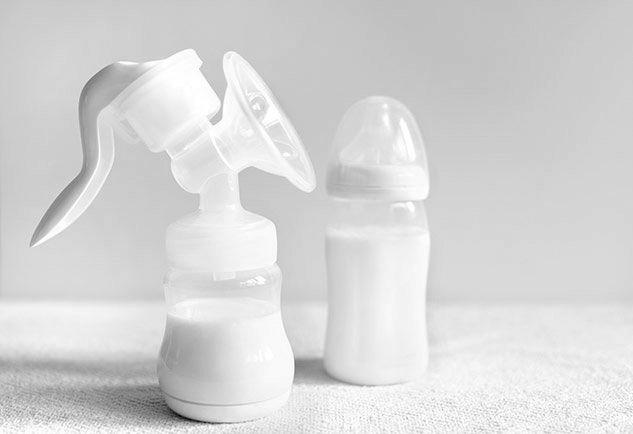
10 minute read
Has the best intentions
The Yolo County Elections Office will begin processing and counting vote-by-mail ballots for the June 7 California Statewide Direct Primary Election at 9 a.m. on Friday. The totaling and posting of election results will begin after 8 p.m. on Tuesday.
“The processing and counting of vote-bymail ballots is open to the public and we welcome anyone who is interested in observing,” said Jesse Salinas, Yolo County assessor/clerkrecorder/registrar of voters. "It is strongly recommended that all persons, regardless of vaccination status, continue indoor masking at events such as this," a press release from the county said.
Those interested in observing should email elections@yolocounty. org.
Food bank makes change
The Yolo Food Bank board of directors announced Tuesday that Michael Bisch is no longer serving as executive director and is leaving the organization effective immediately. Bisch has served in the role since 2018.
“Our board has decided that the organization needs to move in a different direction and that the first step in that process is to install a new executive director,” said YFB board member Kate Stille. “We’re very appreciative of the work that Michael did over the past four years to help put the Food Bank on a positive path forward, and we wish him the best of luck.”
The board also announced that it is immediately starting a search for a new executive director.
“The Yolo Food Bank is on very solid footing and with the talent and skills of our dedicated employees, and the continued support of our donors and volunteers, we’re confident moving forward that we’ll build further on our success in serving the Yolo County community,” said Stille.
By marianne SkoCzek Special to The Enterprise
Two UC Davis graduate students earned the $20,000 first prize for the best innovation in the 22nd annual Big Bang! Business Competition on Thursday, May 26.
Davis-based Storx Technologies has developed a noninvasive device that accurately determines a baby’s well-being in the womb — and helps doctors decide whether the baby can be delivered naturally, avoiding an unnecessary cesarian section.
The innovation was developed in electrical and computer engineering professor Soheil Ghiasi’s UC Davis lab after Ghiasi’s wife experienced a C-section.
$90,000 in prizes
The UC Davis Big Bang!, organized by the Mike and Renee Child Institute for Innovation and Entrepreneurship, has been helping entrepreneurs start or grow business ventures for more than two decades through the competition, workshops, mentoring and networking opportunities. This year the Big Bang! was open to teams with a founder or team lead affiliated with a college or university in California. The prizes are funded by corporate, nonprofit and various other sponsors.
The annual awards ceremony — held in person on the UC Davis campus for the first time since 2019 — celebrated the contestants and announced the winners of $90,000 in prizes for innovations in food and agriculture, health, energy/sustainability and social enterprise.
Sixteen finalists — out of 44 qualifying teams in this year’s competition — pitched their ventures before five judges in a 10-hour marathon judging session. Judges considered the teams’ integrated strategy, steps toward implementation and market opportunity to determine prize winners.
The $10,000 People’s Choice Award winner was selected by online voting that was open to the public.
Health and safety during labor, delivery
Storx Technologies Big Bang! team members Regina Hoang, an MBA student, and Kourosh Vali, a doctoral candidate in computer engineering, met in a fellowship program that helps students with a business idea move their innovation or research off campus and into the world.
Vali got involved in the medical device project as a graduate student researcher in Ghiasi’s electrical engineering and computer science lab, where he has worked since September 2018.
After Ghiasi’s wife underwent an emergency C-section, the professor was motivated to seek a solution that would help doctors and patients.
Currently, doctors assess a baby’s well-being during labor and delivery using electronic fetal heart rate monitoring, or EFM. When EFM shows the baby does not have adequate oxygen (fetal hypoxia), and may suffer disabilities or death as a result, doctors typically rush to perform a C-section.
Data published in the journal Clinical Obstetrics & Gynecology has shown that 30% of babies delivered in U.S. hospitals are detected as potentially hypoxic; however, 60% of those detections are false alarms.
The professor’s lab developed a wearable, transabdominal fetal pulse oximeter to measure a fetus’s blood oxygen saturation levels, and in 2020 Ghiasi launched Storx Technologies to commercialize the technology. Grants from the National Science Foundation and the National Institutes of Health have supported the research.
“This breakthrough device will make labor and delivery safer for moms and babies,” said Vali. “It will let doctors know when the fetus’s blood oxygen saturation levels are low — a red flag that indicates the baby needs to come out right away or risk losing oxygen to the brain or organs. In these cases, the device can prevent disabilities such as cerebral palsy and epilepsy.”
The Storx Technologies team will use the prize money to conduct additional market research and customer calls.
“We learn so much by talking to the doctors and nurses who will actually be using this device and hearing about their pain points and concerns so that we can improve it,” said Hoang.
Storx Technologies is continuing to improve the prototype and conducting additional animal and human clinical trials.
Beat Medical wins two awards
Each year an estimated 33,000 people die in U.S. hospitals due to unplanned extubation — the unintended, uncontrolled removal of a patient’s life-sustaining breathing tube.
Beat Medical, co-founded by UC Davis biological science major Kalie Marland and David Zalazar, a Ph.D. candidate in biomedical engineering at UCLA, proposes a solution: a new breathing tube holder.
“Our innovation upgrades the industry standard,” Marland said, “with a curved bite guard to prevent the breathing tube from kinking and silicon cushions to prevent facial ulcers, it is uniquely exchangeable, preventing unplanned extubations.”
Beat Medical took home three prizes totaling $25,000 — the $10,000 Human Health and Industry Sector Award, the $10,000 People’s Choice Award and $5,000 in in-kind services at Davis-based startup incubator Inventopia.
The startup is currently drafting a provisional patent, says Marland, and will use the prize money to help them obtain a full patent. “This will enable us to commercialize our product and get it into hospitals by 2023. We already have a mold and finished prototype, as well as interested hospitals and letters of intent from distributors.
“Our long-term goal is to expand beyond California, specifically to other states and to Europe within the next five years.”
Other winners
An additional $45,000 in Big Bang! prizes was awarded Thursday. Each winning team is listed with a link to the website or the video used in the competition. All ventures have a California founder or co-founder. n Chilk.co, of Los Angeles: A healthy, vegan, all-natural alternative to boba milk tea brands high in calories and refined sugars. Food + Agriculture Sector Award, $10,000. Co-founder and chief marketing officer: Jake Grodnitzky, undergraduate student majoring in international business at California State University, Long Beach. Cofounder and CEO Hongjiang “Leo” Liu, Ph.D. candidate in biochemistry, UCLA. n DairyFIT, of Davis: AI platform with customizable machinelearning algorithms to provide farmers insights into their herd to inform decisions. Animal Health + Industry Award, $10,000; in-kind services at agriculture, food and health accelerator AgStart, $5,000. Founder: Catie McVey, Ph.D. candidate in animal biology, UC Davis. n JusCheckIt, of Sacramento: Building the foundation for a new go-to place for legal questions, conversation and help so individuals understand the law and feel protected. Social Entrepreneurship Award, $10,000. Co-founder and CEO: Cameron Gallad, a 2021 UC Davis graduate in communications. n MatterCup of Davis: A deposit-based, circular-use cup sharing system that revolutionizes the takeaway/to-go industry by replacing the single-use cup with a reusable alternative. Energy and Sustainability Award, $10,000. Co-founder: Chantal Deslauriers, undergraduate student majoring communication and art history at UC Davis.
Video with hospitalized babies helps new mothers cope
Madrigals preview U.K. tour
By CaleB Hampton
The Davis High School Madrigal Singers, directed by Dr. Karen Gardias, will be traveling to the United Kingdom on June 13. While abroad, the students will perform, work with world-class directors and musicians, and get to visit some amazing sights.
Come see a preview of their U.K. Tour repertoire at 3 p.m. Sunday, June 5, at the Episcopal Church of St. Martin, 640 Hawthorne Lane in Davis.
The performance will be free, while donations are greatly appreciated. Donate to support the tour now at auctria. events/UKConcert. Enterprise staff writer
Being a new mother is never easy — and it can be especially difficult when your baby is hospitalized in a Neonatal Intensive Care Unit (NICU), which is the case for more than 10% of all babies born in the United States.
Researchers at UC Davis Health studied one of the unique challenges that mothers with newborns in the NICU face — feeding their baby — and identified a way to improve the experience.
According to the team’s findings, which were published this month in “Breastfeeding Medicine,” mothers who used videoconferencing technology to watch their baby in the NICU reported an improved experience while pumping or expressing milk.
“Breast milk feeding is an essential component of care for the hospitalized premature infant, but it can be challenging due to factors including low milk supply, the need to express milk instead of feeding directly from the breast, as well as the stress and anxiety for new parents who are physically separated from their premature infants in the hospital environment,” said study lead author Adrienne Hoyt-Austin, assistant professor in the division of clinical pediatrics at UC Davis Health.
For the study, UC Davis Health enrolled participants who used a videoconferencing program called FamilyLink to watch their hospitalized babies while they were not at their bedside in the UC Davis NICU. The program allows families to watch their baby from home through a secure connection on their computer, tablet or phone. The video feed is available 24 hours per day, seven days a week.
The research team interviewed participants who pumped breast milk while watching their hospitalized newborn on the video feed as well as participants who pumped without videoconferencing with their baby. All of the participants had given birth to an infant who was less than 34 weeks gestational age and was admitted to the UC Davis NICU.
In one-on-one interviews, participants were asked 14 open-ended questions about their pumping experience.
Afterward, the researchers identified four common themes in the mothers’ responses.
The NICU video feed improved bonding and connection with the babies for the mothers as well as for other family members. The presence of a video connection provided motivation for mothers to pump. One participant said that seeing their baby was a “visual reminder that this is what I’m doing this for.”
The video also reminded participants that they were separated from their babies. “I became just kind of guilty watching, feeling like I should be there instead of away,” one participant said. And it helped introduce the baby to other family members and explain to them some of the complicated aspects of neonatal hospitalization.
“In our interviews, we heard over and over again that videoconferencing improved the pumping experience and gave motivation to continue to provide breast milk for their hospitalized infant. Participants also felt that seeing their baby while pumping strengthened the bond between the family with their newborn,” said HoytAustin.
“We hope that the use of videoconferencing for NICU parents will become a more widely available tool in NICUs that can help new parents in their breastfeeding journey.”
The study co-authors are Iesha Miller, Kara KuhnRiordon, Jennifer Rosenthal, Caroline Chantry, James Marcin, Kristin Hoffman and Laura Kair, all of UC Davis Health. — Reach Caleb Hampton at champton@ davisenterprise.net. Follow him on Twitter at @ calebmhampton.
Courtesy photo
According to a study by UC Davis Health, mothers who used videoconferencing technology to watch their baby in the NICU reported an improved experience while pumping or expressing milk.











